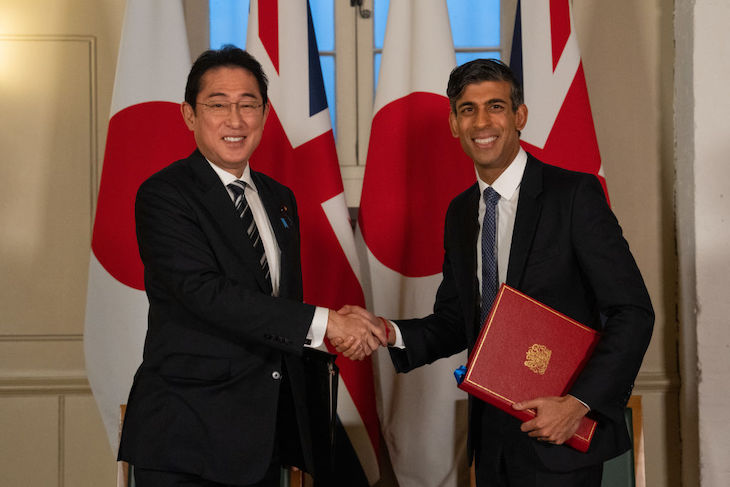Britain’s acceptance into the Comprehensive and Progressive Trans Pacific Partnership (CPTPP) will be presented by the government as a triumph, a statement that Britain really does, finally, have something substantive to show for Brexit.
It is a deal which could not have been done so long as Britain remained a member of the EU, as the only trade deals we were allowed to enter into were those negotiated by the EU on our behalf. Cynics might counter that there is limited point in joining a trade bloc when you already have bilateral trade deals with seven of its 11 members and have negotiated deals with two others which have yet to begin. In practical terms, Britain’s membership will open up free trade with Malaysia and Brunei but that is about all – which, put that way, sounds a rather modest achievement.
By joining CPTPP, the UK government has created for itself a potential political hot potato
The main advantage may be that it should finally put down the Remainer argument that Brexit was a little Englander project designed to keep out the rest of the world and allow us to live in splendid isolation. Here is proof that Global Britain really is going out into the world – and has the imagination to see that trade blocs no longer have to be geographically-defined. With it now being so cheap and easy to move stuff around the world (outside a pandemic), you can search for trading partners wherever you like. In any case, Canada is a lot nearer Britain than it is Australia – the Pacific is so large that its rim isn’t really made up of proximate countries.
The question is, however, where does CPTPP go from here? Originally, under Barack Obama, it was supposed to include the US. However, Donald Trump withdrew, which caused the whole project to collapse for a while before being revived. Should Biden or his successor decide to rejoin, Britain’s membership would be a neat backdoor route to a trade deal with the US. That really would be a coup, given the EU’s failure to negotiate trade deal with the US, and Joe Biden’s seeming lack of interest in cutting a deal with Britain. At the moment, however, the US shows no intention of joining CPTPP.
China, though, has applied to join. That raises serious questions: would we really want to be a member of a free trade area which included China, given that at present we are trying to ban, for example, Chinese-made surveillance equipment from UK public networks?
China may end up being vetoed as a member of the CPTPP – it is hard to imagine Japan being too enthused by the idea of being in a free trade area that would inevitably end up being dominated by China. Moreover, CPTPP rules of membership demand a respect for freedom of association and trade union freedoms – which China will almost certainly struggle to comply with. It is possible that China is not even serious about wanting to join, and has filed its application in the hope of dividing its economic rivals – were the CPTPP to break into a pro-China and anti-China camps it would weaken the whole enterprise, which might well suit China.
But then again, China did succeed in being accepted into the World Trade Organisation two decades ago – even if it has subsequently proved to be a lousy member when it comes to obeying the rules on state subsidies and other matters. One thing is for sure, by joining CPTPP the UK government has created for itself a potential political hot potato for the future in the event of China’s application progressing.







Comments